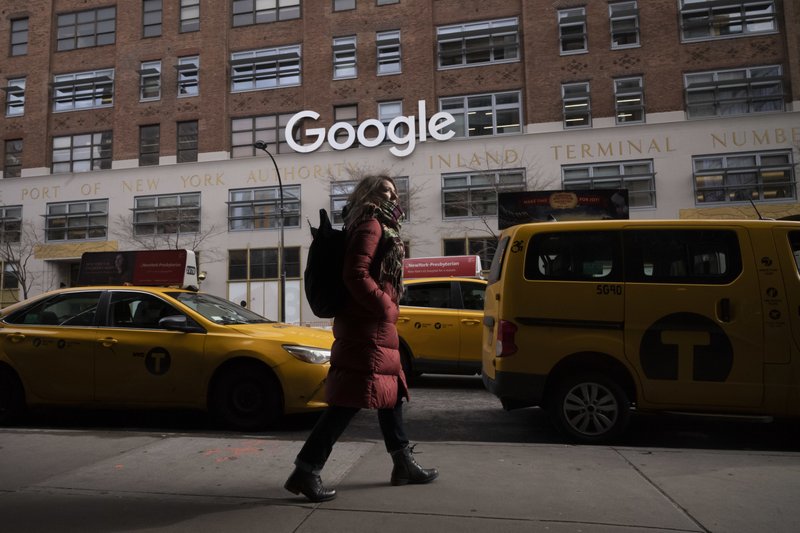Google parent Alphabet beat analyst expectations for the second quarter Thursday, sending its shares up sharply as it bounced back from a rough first quarter.
The company comforted investors with advertising revenue growth that edged out last quarter and assurances that video streaming site YouTube and the company’s enterprise cloud business continue to drive growth.
The Mountain View, California-based company brought in revenue of $38.9 billion during the second quarter, a 19% bump from the same period last year. The company reported profit of $14.21 per share, or $9.9 billion during the quarter, nearly triple what it made last year when it paid a $5.1 billion European Commission fine.
Analysts polled by FactSet were expecting Alphabet to report earnings per share of $11.10 on revenue of $38.2 billion during the second quarter.
Google’s stock rose more than 9 percent in after-hours trading after the earnings report was released.
Investors and analysts had been disappointed by slowing advertising revenue growth — Google’s main cash cow — after the first quarter. But their concerns didn’t continue into the next quarter.
Excluding advertising commissions that Google pays to customers, Alphabet’s overall revenue was $31.7 billion, more than the $30.9 billion analysts had estimated.
The company did not disclose anything about federal regulatory concerns in its quarterly report — unlike Facebook, which said Wednesday that the Federal Trade Commission is investigating it for antitrust concerns.
Google is facing mounting pressure from federal elected officials and regulators over a variety of issues such as its market power, misinformation and claims — usually offered without evidence — that its popular search engine and other services are biased against conservative politicians and viewpoints.
The company has repeatedly denied those claims.
On Thursday, the campaign for Democratic presidential candidate Tulsi Gabbard sued Google, alleging the company improperly suspended her advertising account after the first presidential debate. The lawsuit claims the company “silenced” her.
Advertising accounts are suspended automatically in certain cases, including when huge spending changes occur, said Google spokesman Jose Castaneda.
“We are proud to offer ad products that help campaigns connect directly with voters, and we do so without bias toward any party or political ideology,” he said in a statement.
Google is also reportedly under scrutiny from the Justice Department , which announced Tuesday that it would investigate big tech companies for anti-competitive monopoly behavior. The department didn’t name specific companies, but scrutiny has recently focused on Google, Apple, Amazon and Facebook.
Google CEO Sundar Pichai briefly addressed the concerns on a conference call with analysts Thursday. The company is no stranger to regulatory scrutiny, he said.
“Even in the U.S. we have engaged in the process before,” he said. “To the extent we have to answer questions we will do so constructively.”
Google was the subject of an FTC investigation that ended in early 2013 without the agency taking any antitrust action.
Pichai also acknowledged increased conversations about how the company handles user data privacy. He reiterated announcements Google made earlier this year that are designed to give people more control over what information they are sharing, when.
“It’s one of the most important areas we are working on,” he said.
The company’s streaming site YouTube, a big driver of advertising revenue, has also faced backlash from Congress and regulators over offensive videos on the site and the protection of children who appear in videos or watch YouTube.
Google updated its hate speech policies for YouTube during the quarter, Pichai pointed out, and continues to focus on its “YouTube Kids” app.
A Washington Post report last week suggested the company is expected to pay a multimillion dollar penalty from the FTC over the way it handled kids’ information on YouTube.
But none of the bubbling scrutiny put a damper on Google’s financials or executive claims that the company’s cloud business is making great strides. That includes its business that rents computing power to other companies, as well as its enterprise software tools such as G Suite.
Google’s cloud — while growing — still falls behind market leader Amazon and runner-up Microsoft.
Alphabet’s losses continued to grow for its Other Bets businesses, which include more “moonshot” businesses such as self-driving car company Waymo and internet connectivity balloon company Loon. Other Bets reported a loss of $989 million on revenue of $162 million.
And Alphabet increased its headcount once again — this time to 107,646 employees, adding more than 18,000 workers in the last year.
(AP)











